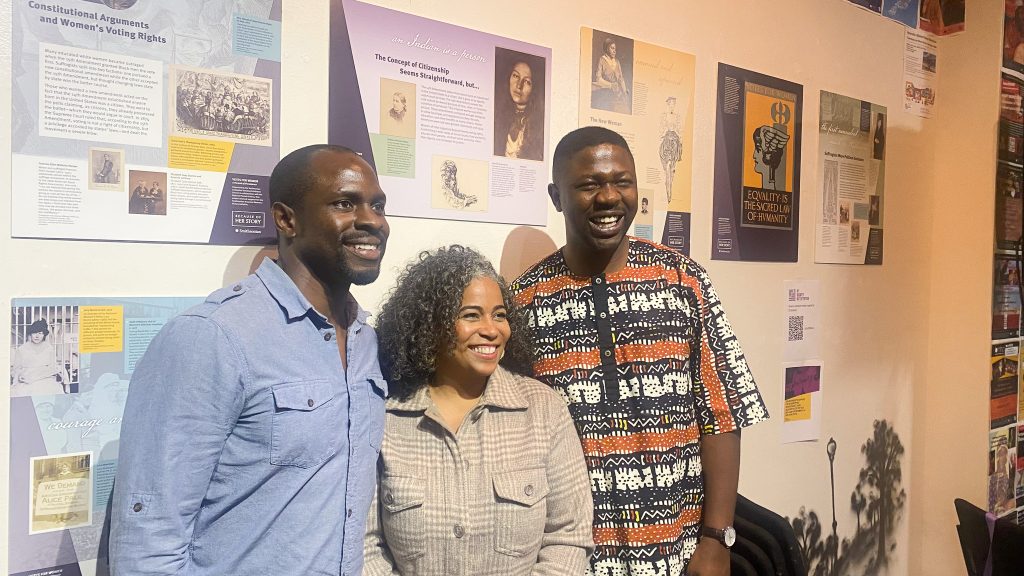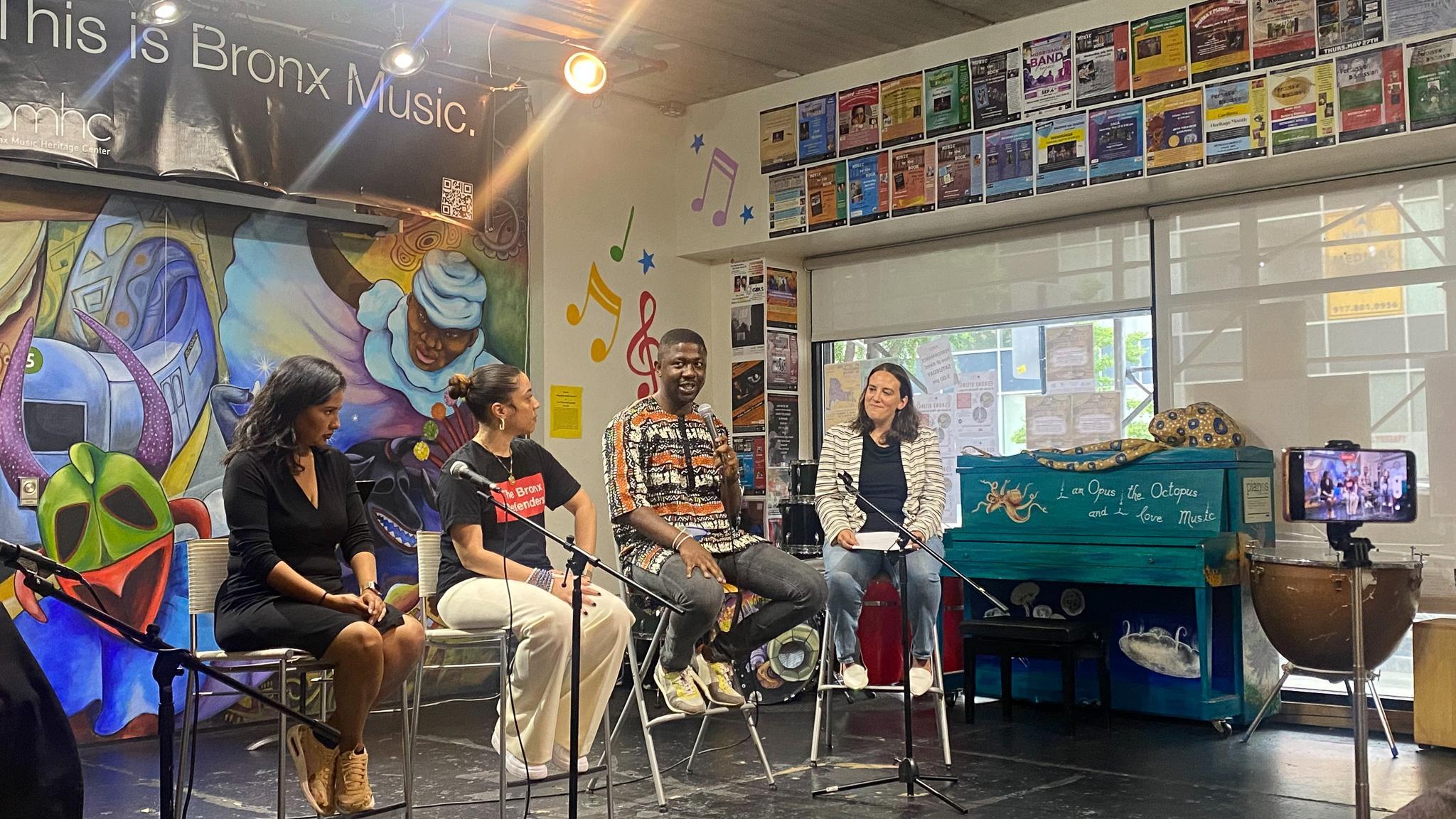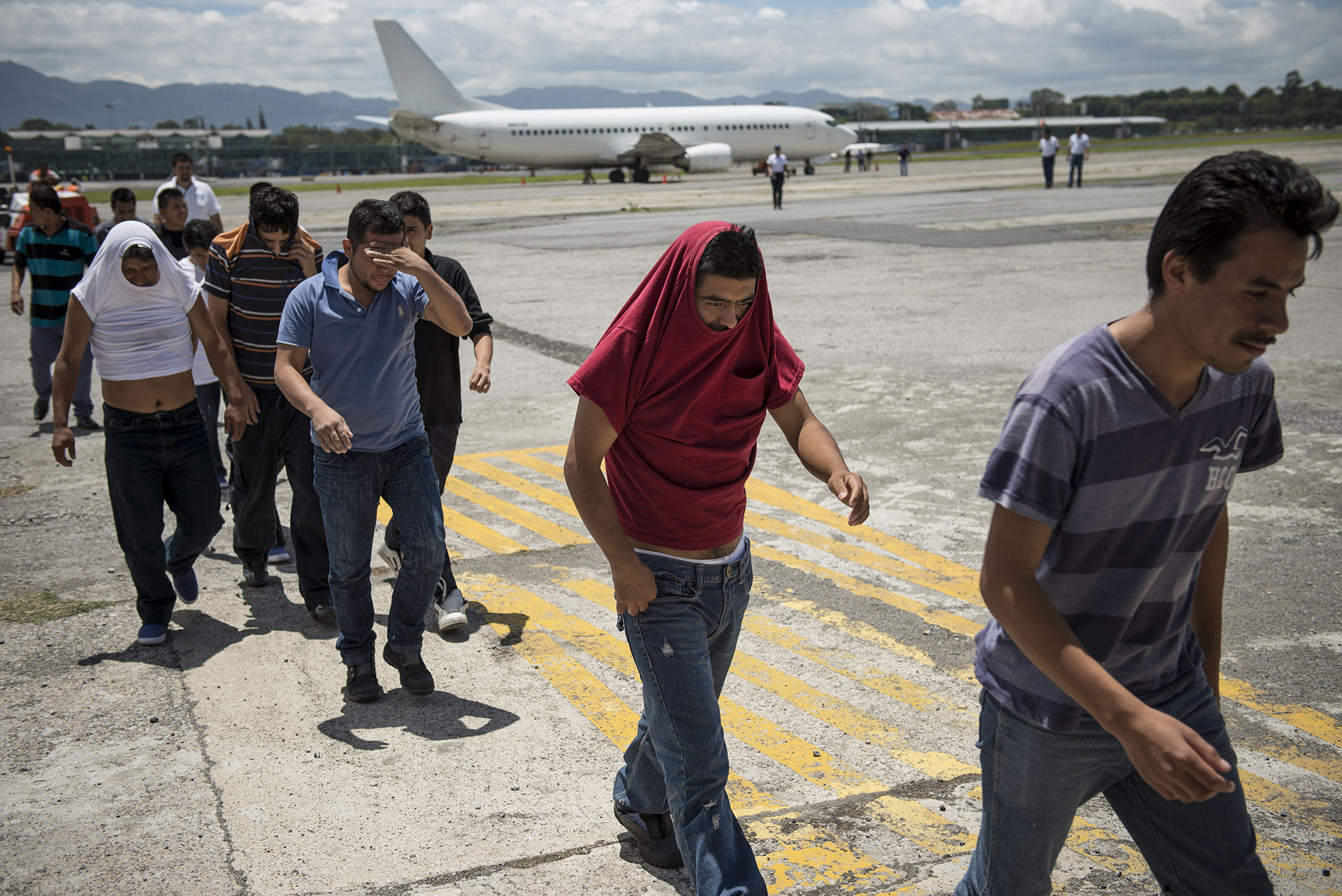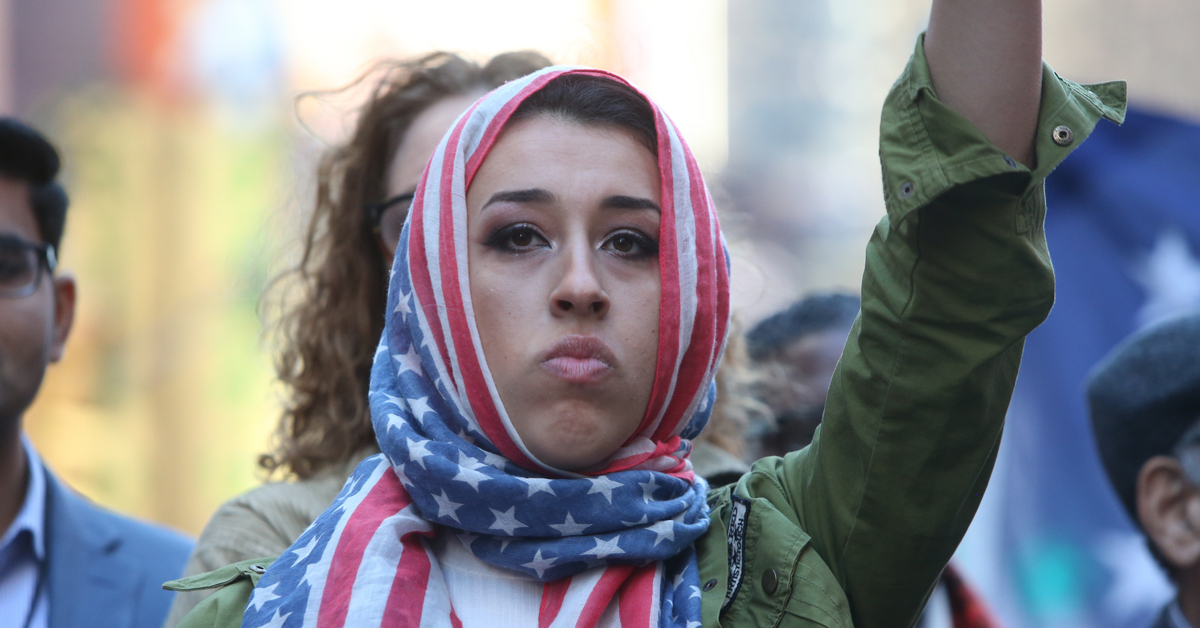“Sir please, please, I cannot return back to Nigeria. I will be killed for being gay,” the actor Gbenga Akinnagbe said as he reenacted the true life story of Edafe Okporo to a crowd at a community forum in the Bronx Music Heritage center on June 22nd.
Also Read: Migrants Struggle to Find Lawyers to Meet One Year Deadline to File for Asylum
“I did not know what those words meant. I had officially declared myself an asylum seeker in America,” Akinnagbe continued.
In the solo performance, Akinnagbe switched from one character to another as he acted out the conversations that took place between Okporo and the Immigration Officer who detained him at John F. Kennedy airport in 2016.
When immigration authorities proceeded to arrest Okporo at the airport, his thoughts immediately flashed back to the incidents that led him to flee Warri, Nigeria: he had suffered physical beatings, kidnappings, and extortion. However, the breaking point was when he faced a terrifying mob attack.
“A violent mob, broke into my home, beat me, dragged me out naked, and children saying behind: he’s gay, we have found out, and we will kill him,” Akinnagbe said on stage.
This incident became Okporo’s last memory of Nigeria, where same-sex acts were criminalized in 2014 with a penalty of a 14-year sentence. This law, and societal pressure for Okporo to conform to conventional masculine norms, forced him to leave his family and the only place he had ever called home, embarking on a quest for safety and freedom. Now in America — the land of the free — it was as though Okporo was trading his near-death experience only to be taken into a cage, Akinnagbe said in his performance.
Immigration authorities at J.F.K. chained Okporo’s hands and legs with handcuffs and shackles. He was moved into a bus, and taken to Elizabeth Detention Center in New Jersey. While there, he said he experienced inhumane conditions in ICE detention facilities that immigrant advocates and human rights activists have been protesting for years: he worked in the kitchen as a detainee earning $1 a day; it’d take him 31 days to make $31.
His bed — number 26 — was situated next to the bathroom. “The smells and sounds from that bathroom made my stomach churn,” Akinnagbe said on stage as he continued to act out Okporo’s experience. “Every day I had to wake up in that bed was a dream of pure hell. I came to America to live in safety from prosecution only to find myself in prison. I wasn’t angry at the dehumanizing system. I was angry at myself. I felt like I was being punished for something I had done. If only I had lived according to tradition, married a woman, had children, none of this would be happening. If only I had obeyed. But I remain optimistic.”
Akinnagbe also conveyed that Okporo didn’t have access to a phone and the cost of using the phone booth to make international calls was high. He said Okporo became sick and showed clear signs of illness, such as trembling and frequent coughing. Yet, the doctor who attended to the ICE detainees only provided him with Tylenol. And he said Okporo also observed instances of prejudice and animosity towards individuals who identify with the LGBTQIA+ community, as well as unfair practices, such as immigration documents written in English being given to non-English speakers, which put them at risk of unintentionally relinquishing their rights, and getting wrongfully deported.
Akinnagbe is a first generation son of Nigerian immigrants, known for his career defining role as ‘Chris Partlow’ in the American crime drama television series, The Wire.
Okporo wrote the 15-minute play, adapted from his 2022 book, ASYLUM: A Memoir and Manifesto. His story was the launching pad for the discussions that followed at the community forum — which marked the official launch of the Dignity Not Detention coalition’s 2023 summer campaign to close all ICE detention centers in New York.

The production company that commissioned Okporo’s play, Waterwell, and members of the Dignity Not Detention coalition put together the event as part of a renewed push to urge lawmakers to sign a state bill — the New York Dignity Not Detention Act (S306 Salazar /A4354 Reyes) — into law. If passed, the law would end contracts between the Immigration and Customs Enforcement agency and county jails in New York. Assemblymember Karines Reyes — also present at the event — and State Senator Julia Salazar introduced the bill in 2021. It has since stalled in the New York State Legislature.
“I was aware of the legislation and this incredible coalition of organizers working to get this bill passed in New York State. There was some frustration that the bill wasn’t passed in 2022, and we had this super majority in the state legislature. Then it was this big question about whether or not it would get voted on in 2023,” Lee Sunday Evans, Waterwell’s Artistic Director, told Documented. Evans connected to the Dignity Not Detention coalition and suggested collaborating with Okporo to support the coalition’s efforts. Waterwell then worked with Raz Golden to direct the play.
Under the Trump administration, there was a significant increase in the population of individuals held in ICE custody, reaching over 50,000 people detained on average each day in fiscal year 2019.
As of June 4, 2023, ICE held nearly 30,000 people in detention, TRAC reported. About 65% — or 19,324 — of those people held have no criminal record. Many more have only minor offenses, including traffic violations, the report noted. Texas, Louisiana, California, Georgia, and Arizona house the most ICE detainees as of this year, with Texas accounting for nearly 10,000 individuals.
In New York, there are three ICE detention centers currently holding 389 individuals in Buffalo (Batavia), Clinton county, and Orange county, according to ICE detention statistics as of June 12, 2023.
Assemblymember Reyes spoke about her visit to detention centers, one of which was the Orange County Detention Center in New York.
“[ICE detainees] would tell me stories like: ‘I was stopped for DWI, I actually served time in prison for my crime, and the moment I was released, I was picked up by ICE in this very building, and re-detained,’” Reyes said. “This is the reason why we can’t continue to allow this to be the norm in the state of New York, because [ICE] is an agent for profit, and we’re literally using people’s lives to make profit.”
Advocates say the closure of ICE detention centers will help to mitigate the traumatic experiences detainees go through in the facilities. Their families also feel the mental and emotional trauma from their loved ones’ experiences. “I’ve seen the impact it has on children. I’ve seen children no longer have the desire to live because of the tragedy that comes when a family member is separated from their family,” said Carol Larancuent, Legal and Policy Advocate of Immigration Practice at The Bronx Defenders, which is also affiliated with the DND coalition. “It impacts their financial status, it impacts their housing, it impacts their community support as well because people also feel that they don’t want to reveal what is going on in their case,” she said at the event.
If the legislation gets signed, New York will follow New Jersey, California, Washington, Illinois, and Maryland, which have signed similar legislation into law.
The bill has been sitting in New York’s legislature for years as a result of not having a majority of the Assembly and Senate sign on to it. Members of the coalition are optimistic that it will pass during the 2023 – 2024 legislative session, which begins in January 2024. “This session [which ended this June], we got twice as many co-sponsors to the bill as last year. So we’re very, very close to having majority,” Tania Mattos told Documented at the event. Mattos is a founding member and organizer of the Abolish ICE NY-NJ coalition, which includes the Dignity Not Detention coalition. “Unfortunately, the anti-immigrant rhetoric that’s happening right this very moment, is making it difficult for any immigration bill to pass in Albany, anything to happen in Albany. That’s been a difficulty,” Mattos said.
Despite the setbacks, the bill has gained traction over the course of several events. New York’s neighboring state, New Jersey, is ending its contracts with all private prisons that partner with ICE to detain immigrants. Elizabeth Detention Center — where Okporo was detained — is expected to be the final detention center in New Jersey to end its contract this summer.
“We’ve been fighting for five years. But we’re successful,” Okporo told Documented, highlighting the progress the movement has been making.
In 2021, the federal government declined to renew a contract with the GEO Group, the country’s second-largest private prison corporation, which held ICE detainees in its facility in Queens, New York. The Dignity Not Detention coalition hopes for state-run prisons to follow suit by ending its contracts with ICE. On the west coast, California is expected to not have partnerships with prisons to detain immigrants starting in 2028.
Okporo is also the founder of Refuge America, with a mission to strengthen the U.S. as a place of welcome for displaced LGBTQ+ people, helping them rebuild their lives in new communities.
补偿终止但盗窃不止!纽约近9千起粮食券被盗案难获赔
In an interview with Documented after his performance, Akinnagbe said Okporo’s story was compelling. “He’s telling these stories and other people’s stories to help folks who are like him. We took the hell he went through and it has helped so many people. In a foreign country, he’s doing it.”
During his solo performance, as Akinnagbe wrapped up the play, he walked towards the outer part of the stage to recount Okporo’s final day in detention after an immigration judge granted him asylum. “I walked out of the detention center and stood outside of the empty road looking up at the vast sky and shining stars and I said to myself: I am free,” Akinnagbe said with a long pause. “I miss my family. I left them behind to come. But the fear of doing it on my own has set in. I have nowhere to go and I will not trade any of it for my freedom.”
Okporo watched Akinnagbe throughout the performance. “When he said freedom, I shed tears,” Okporo told Documented following Akinnagbe’s reenactment of his story. “When I was coming to America, I came with the idea to live freely as a gay person. It’s not his experience, [yet] he helped to convey the weight and severity.”
Akinnagbe said, “so much of Edafe’s story is so much of all of our stories, especially being children of immigrants, and I think we have the responsibility to make sure we continue to help immigrants, those seeking asylum and otherwise.”















